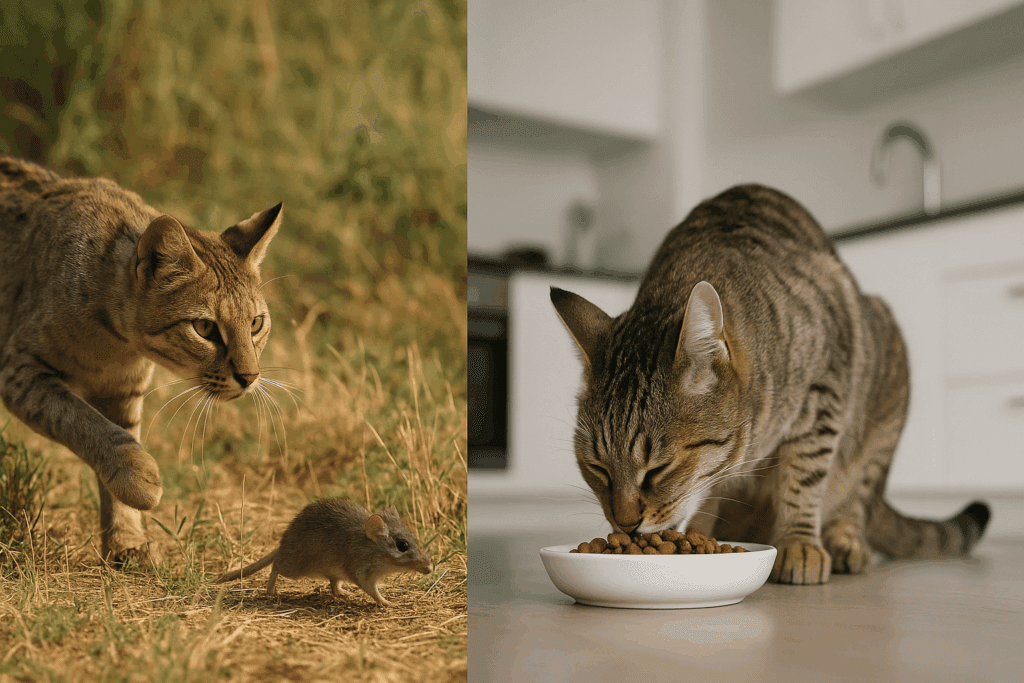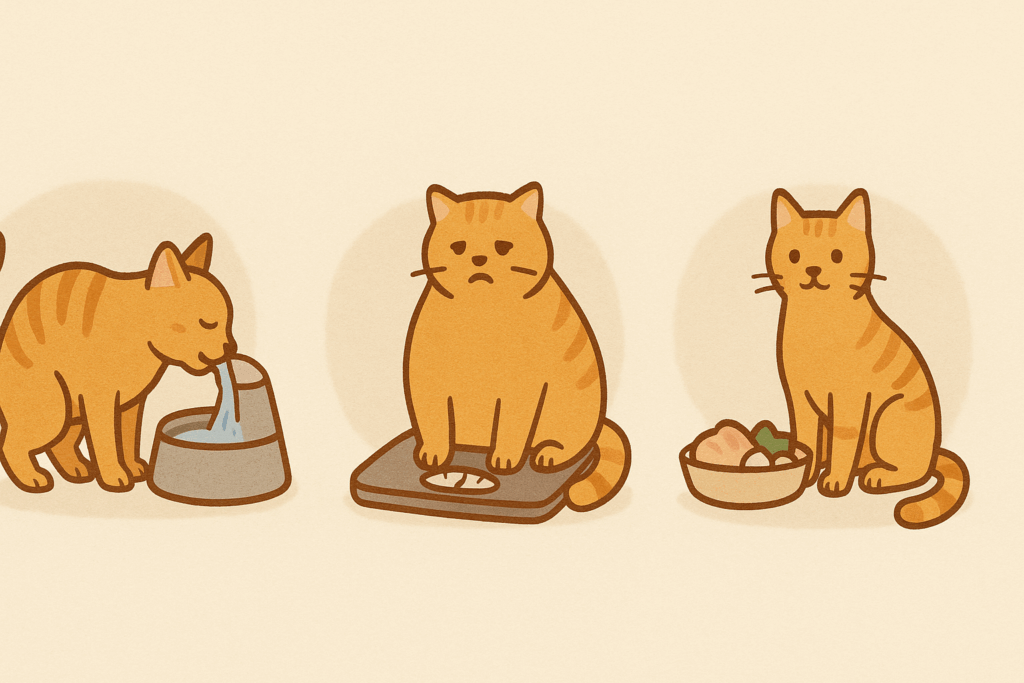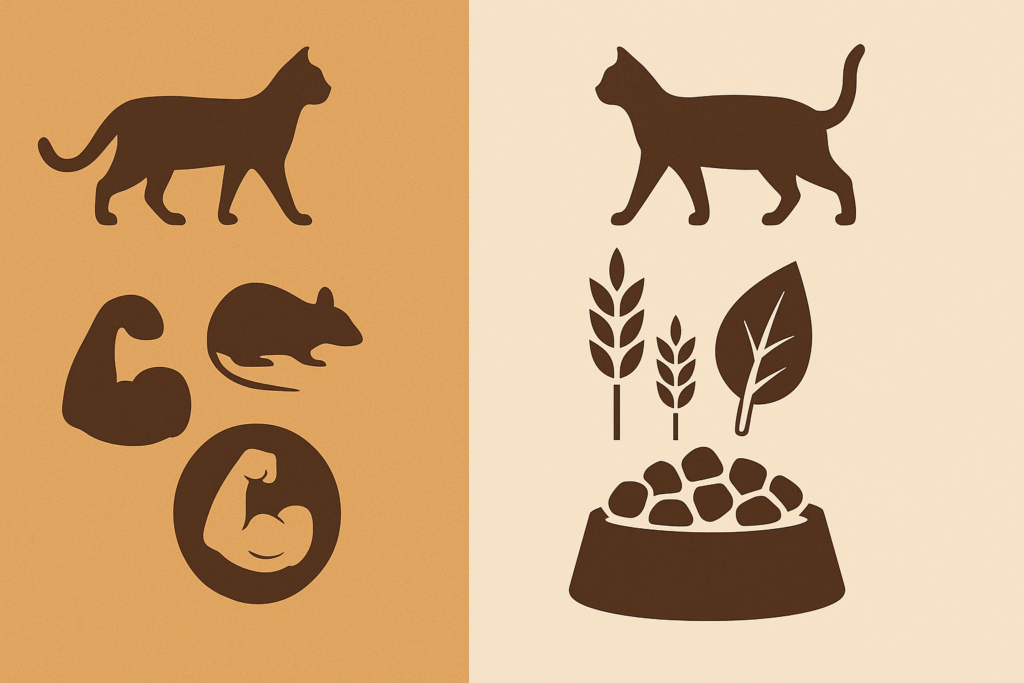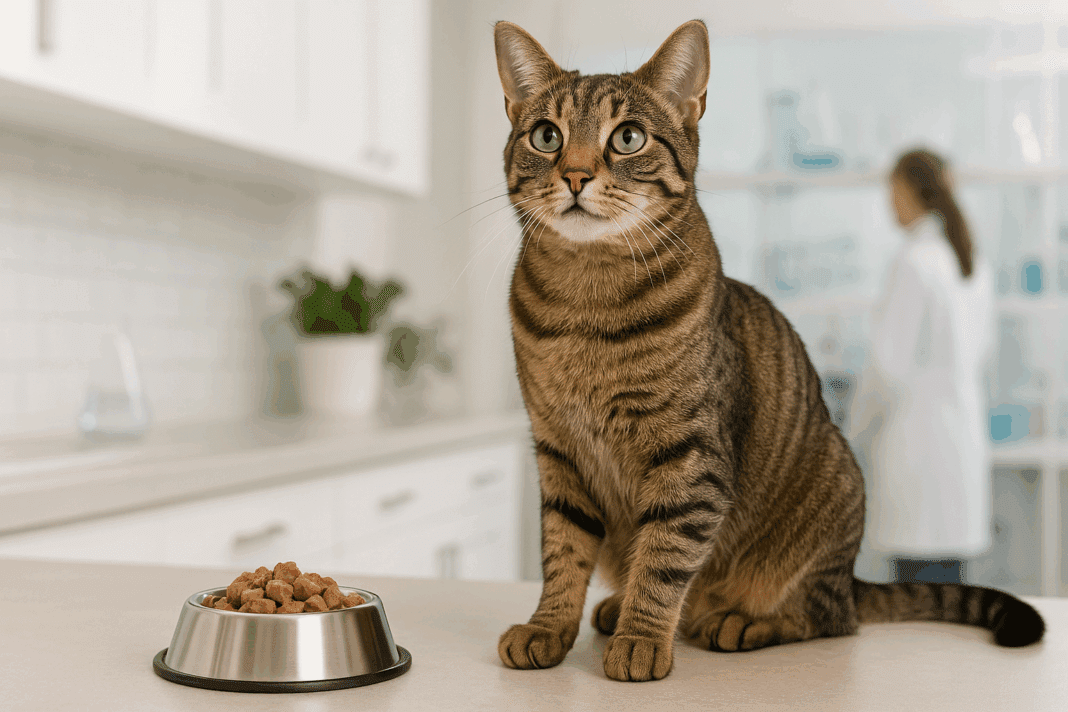Feline nutrition is a complex topic, but Dr. Elsey’s has simplified it with science-backed dietary solutions. Explore the nutritional philosophies that guide the formulation of Dr. Elsey’s cat food products, designed to address specific health issues and ensure that cats thrive at every stage of life.
Ensuring Feline Health at Every Life Stage
Cats, with their sleek, agile bodies and predatory instincts, may appear to be self-sufficient, but their nutritional needs are as complex and specialized as their behavior. Unlike dogs, cats are obligate carnivores, meaning their diet must consist primarily of animal-based proteins like meat and fish. This biological necessity shapes the way their bodies process food and absorb essential nutrients, making feline nutrition a science that demands careful consideration.
Feeding a cat is more than filling its bowl with any available food. Providing the right balance of proteins, fats, vitamins, and minerals is crucial to support their health and well-being throughout their lives. Yet, with so many options on the market, from raw diets to specialized formulations, many cat owners may feel overwhelmed when it comes to choosing the best food for their pets. This article delves into the complexity of feline nutrition and explores the nutritional philosophies behind special diets.

Understanding Feline Nutrition: The Basics
The nutritional needs of cats are distinct from those of other animals, largely because of their evolution as obligate carnivores. Cats in the wild thrive on a diet primarily composed of small prey, which provides them with high-quality animal protein, fats, and a variety of essential nutrients, including taurine, arachidonic acid, and preformed vitamin A. These nutrients are found in animal tissues but are scarce in plant-based sources. Consequently, cats have a limited ability to metabolize carbohydrates and require specific nutrients in their diets that other animals can synthesize on their own.
According to a 2021 study published in the Journal of Animal Physiology and Animal Nutrition, diets high in animal protein and low in carbohydrates help prevent obesity and diabetes in cats—two common health issues linked to carbohydrate-rich, grain-heavy commercial diets. This underscores the importance of selecting foods specifically designed to meet the nutritional needs of cats.

Key Nutrients Cats Require
Protein:
Protein is the most critical component of a cat’s diet. Cats need more protein than most other mammals due to their unique metabolism, which is optimized to break down proteins into energy. Protein supports muscle growth, tissue repair, and enzyme production. Without sufficient high-quality protein, a cat’s body will start to break down its muscle tissue to meet its energy needs, leading to muscle loss and other health problems.
Taurine:
Taurine is an essential amino acid that cats cannot synthesize in sufficient quantities, meaning it must be obtained through their diet. Taurine is critical for heart health, vision, digestion, and immune function. A deficiency in taurine can lead to severe health issues, including heart disease (dilated cardiomyopathy) and retinal degeneration, both of which are life-threatening conditions in cats.
Fats:
Cats also require fats, particularly omega-3 and omega-6 fatty acids, which are important for maintaining a healthy coat and skin, supporting brain development in kittens, and promoting cardiovascular health. Cats rely on fats for energy more than carbohydrates, and a deficiency in these essential fats can lead to skin problems, poor coat condition, and impaired immune function.
Vitamins and Minerals:
Cats need specific vitamins and minerals in their diet to support various bodily functions. Vitamin A, for example, is essential for healthy vision, and vitamin D helps regulate calcium and phosphorus levels, supporting bone health. Cats also require a range of B vitamins for energy metabolism and red blood cell production. Key minerals like calcium, phosphorus, and magnesium are important for bone and dental health, while iron, zinc, and selenium support immune function.
Dr. Elsey’s cat food products are formulated with more than 90% protein derived from animal sources, adequate levels of taurine, optimal ratios of omega-3 and omega-6 fatty acids sourced from fish oils and animal fats, and carefully balanced with the right blend of vitamins and minerals.

Addressing Specific Health Issues Through Diet
Many cats develop health issues that can be managed or prevented through proper nutrition. Specialized cat food aims to address common feline health problems, such as urinary tract issues, obesity, and gastrointestinal sensitivities.
Urinary Tract Health:
Urinary tract issues are common in cats, especially males, who are more prone to urinary blockages. These issues can arise due to improper hydration, a diet that is too high in magnesium or phosphorus, or high carbohydrate levels. Dr. Elsey’s emphasizes the importance of moisture-rich cat foods in maintaining urinary health. Cats, being desert animals, have a low thirst drive and are not naturally inclined to drink large amounts of water. Therefore, feeding them wet food or moisture-rich kibble can help ensure they are adequately hydrated, which reduces the likelihood of urinary problems.
Obesity Management:
Obesity is a significant concern for indoor cats, who may not get enough exercise to burn off the calories from high-carbohydrate commercial foods. An estimated 50% of house cats in the U.S. are overweight or obese, which can lead to secondary health issues like diabetes, arthritis, and heart disease. Dr. Elsey’s cleanprotein™ line is designed to help cats maintain a healthy weight by providing high levels of protein and low carbohydrates. A 2020 study published in the American Journal of Veterinary Research found that high-protein, low-carb diets are effective in helping cats lose weight while preserving muscle mass, which is essential for their overall metabolic health.
Gastrointestinal Sensitivities:
Some cats have sensitive stomachs or food intolerances, which can result in digestive issues such as vomiting, diarrhea, or constipation. In these cases, finding a diet that is easily digestible and free from common allergens is essential. These special diets focus on minimizing potential allergens, such as grains or artificial additives, to help cats maintain digestive health and avoid gastrointestinal upset. Dr. Elsey’s formulations are made with high-quality, easily digestible ingredients. Limited- and single-protein diets are key for cats with food allergies. Look for Dr. Elsey’s cleanprotein diets for cats with food allergies to be available in the first half of 2025.

The Science Behind Dr. Elsey’s Nutritional Philosophy
Dr. Elsey’s special diets for cats are rooted in decades of veterinary experience and backed by scientific research. The brand was founded by Dr. Bruce Elsey, a feline veterinarian with over 35 years of experience in feline health. His approach to cat nutrition is guided by the principle that a diet should closely replicate a cat’s natural prey-based diet, which is high in protein and low in carbohydrates.
A study in Veterinary Nutrition Today (2021) supports this philosophy, showing that cats on a high-protein, low-carb diet are less likely to develop obesity, diabetes, and other metabolic disorders. The study further notes that many commercial cat foods are formulated with grains and plant-based proteins, which are not ideal for a carnivore like the domestic cat.
Dr. Elsey’s nutritional philosophy is also aligned with recommendations from leading feline health organizations, such as the Feline Veterinary Medical Association (FVMA) and the Feline Nutrition Foundation, both of which advocate for biologically appropriate diets that emphasize meat-based proteins and minimal fillers.
Why Feline Nutrition Matters
Proper nutrition is fundamental to ensuring that cats lead healthy, happy lives. Given their unique status as obligate carnivores, cats require a diet rich in high-quality animal-based proteins, essential fatty acids, and other critical nutrients to thrive. A balanced diet helps prevent common health problems such as obesity, diabetes, and urinary tract issues while supporting overall well-being.
Science-backed dietary solutions, which focus on providing cats with nutrition that mimics their natural prey, are key to addressing these needs. High-protein, low-carbohydrate diets, in particular, have been shown to benefit cats by maintaining healthy muscle mass, supporting optimal metabolic function, and reducing the risk of diet-related health conditions. Choosing the right cat food, whether formulated for specific life stages or tailored to address individual health concerns, ensures that felines receive the nourishment they require.
Pet owners are increasingly looking for natural, biologically appropriate foods that prioritize their cat’s health without unnecessary fillers or harmful additives. By understanding the science of feline nutrition and selecting the best diets available, cat owners can provide their pets with the foundation they need for a long and healthy life.
For cat owners who are interested in exploring the best possible nutrition for their pets, Dr. Elsey’s offers a range of solutions designed to promote longevity, vitality, and overall health. To learn more about Dr. Elsey’s science-based dietary solutions and explore their full product lineup, visit Dr. Elsey’s website at https://www.drelseys.com/.
Further Reading:
- Understanding the Nutritional Needs of Healthy Cats and Those with Diet-Sensitive Conditions – Vet Clin North Am Small Anim Pract.
- Impact of Dietary Protein Concentration and Quality on Immune Function of Cats – PLoS One.
- Focus on Nutrition: Cats and carbohydrates: implications for health and disease – Compend Contin Educ Vet.



